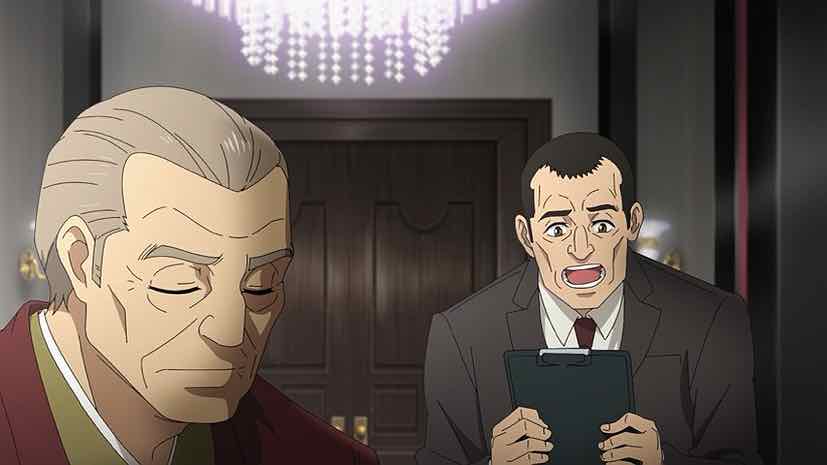 As I’ve noted ad nauseam, this is the season of the bubble. Seems like almost half the series I’ve been covering are in it. Bartender is one of the shows on the Patron Pick ballot, though I haven’t ruled out the possibility of covering it anyway. I quite enjoy it but it doesn’t seem to be a series that catalyzes a whole lot of discussion (and that is a factor). I get that, but it’s also a series that’s kind of doing its own thing. I mean, I certainly don’t see any overlap with this premise and much else I’ve watched over the past few years.
As I’ve noted ad nauseam, this is the season of the bubble. Seems like almost half the series I’ve been covering are in it. Bartender is one of the shows on the Patron Pick ballot, though I haven’t ruled out the possibility of covering it anyway. I quite enjoy it but it doesn’t seem to be a series that catalyzes a whole lot of discussion (and that is a factor). I get that, but it’s also a series that’s kind of doing its own thing. I mean, I certainly don’t see any overlap with this premise and much else I’ve watched over the past few years.
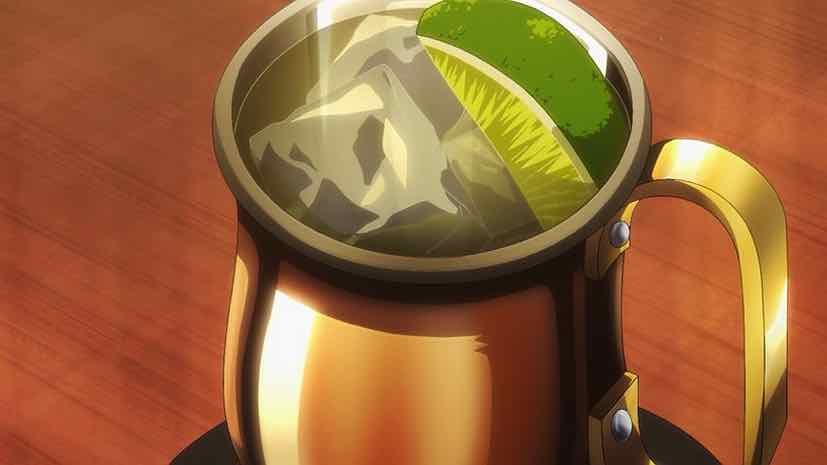 I must confess the geeky side of all this really appeals to me. Under the microscope this week is the martini, probably the most eponymous and – historically at least – popular of all cocktails. Today the trendy zygotes put all sorts of loopy spins on it (the espresso martini probably being the most popular). Historically, though, a martini meant one thing and one thing only – gin and vermouth, stirred with ice. What brands and proportions were the variables to be tweaked (and if you were really a radical, what you plopped inside as a garnish).
I must confess the geeky side of all this really appeals to me. Under the microscope this week is the martini, probably the most eponymous and – historically at least – popular of all cocktails. Today the trendy zygotes put all sorts of loopy spins on it (the espresso martini probably being the most popular). Historically, though, a martini meant one thing and one thing only – gin and vermouth, stirred with ice. What brands and proportions were the variables to be tweaked (and if you were really a radical, what you plopped inside as a garnish).
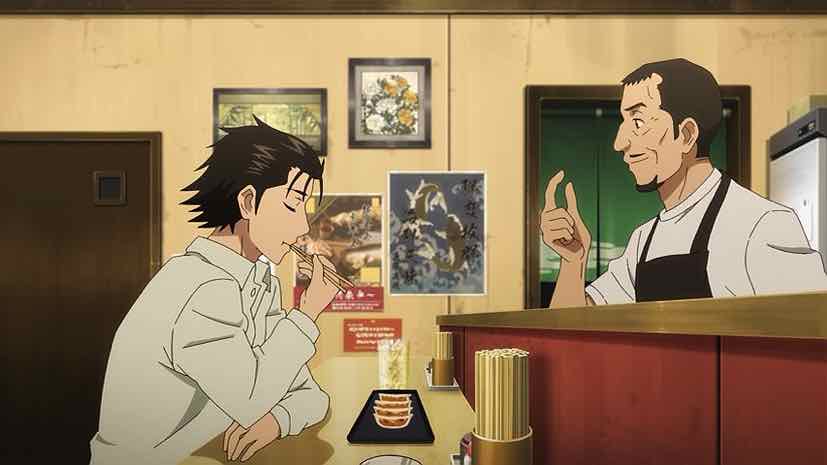 Personally (and it should be no surprise given my already stated distaste for gin), I prefer a vodka martini. A simple, elegant cocktail that really tests the skills of the bartender. If the gin fizz is a good barometer because it requires all the main skills of mixology, the martini is because it tests technique – and because all the character in the drink comes from the bartender, thanks to the simplicity of the recipe. I’ve never heard that “no face” thing, but it’s easy to understand exactly what it means.
Personally (and it should be no surprise given my already stated distaste for gin), I prefer a vodka martini. A simple, elegant cocktail that really tests the skills of the bartender. If the gin fizz is a good barometer because it requires all the main skills of mixology, the martini is because it tests technique – and because all the character in the drink comes from the bartender, thanks to the simplicity of the recipe. I’ve never heard that “no face” thing, but it’s easy to understand exactly what it means.
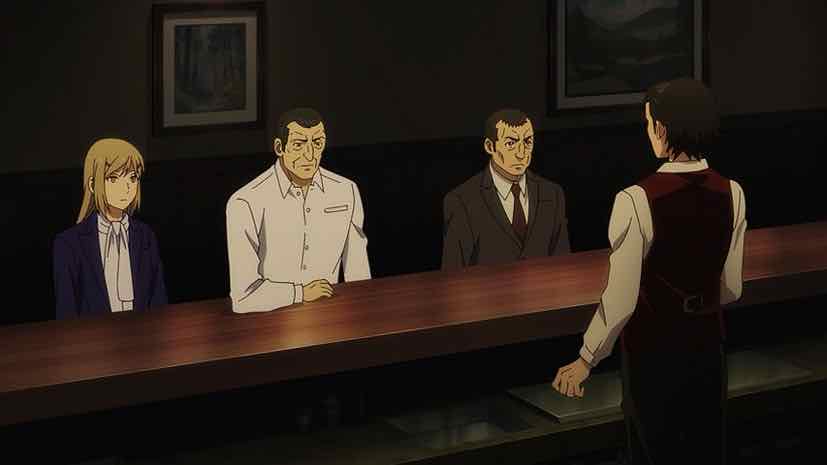 I was a little worried the vodka martini was going to get stiffed here, but it got equal (well, almost) time once the episode moved to Roppongi. it should be noted that when one wants a vodka martini they should order just that – a “vodka martini”. When you just say “martini” that should be a gin martini, a “true” martini in that sense. That’s why I was surprised when the bartender at Hell’s Arms in Roppongi made a vodka martini unprompted. But vodka martinis has grown increasingly popular over the decades (a trend kick-started by James Bond’s “shaken, not stirred” drink of choice) to the point where I suppose in certain trendy haunts, the barkeep might default to that.
I was a little worried the vodka martini was going to get stiffed here, but it got equal (well, almost) time once the episode moved to Roppongi. it should be noted that when one wants a vodka martini they should order just that – a “vodka martini”. When you just say “martini” that should be a gin martini, a “true” martini in that sense. That’s why I was surprised when the bartender at Hell’s Arms in Roppongi made a vodka martini unprompted. But vodka martinis has grown increasingly popular over the decades (a trend kick-started by James Bond’s “shaken, not stirred” drink of choice) to the point where I suppose in certain trendy haunts, the barkeep might default to that.
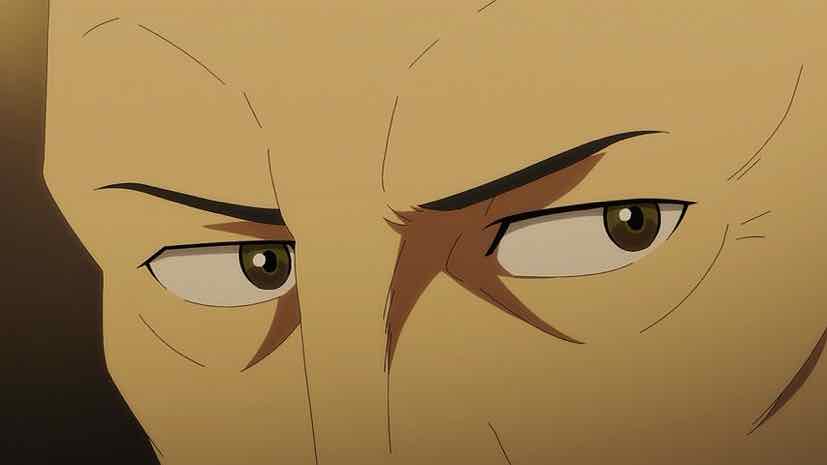 Oh, there is a storyline going on here too. A couple, in fact. The old man is trying to recruit a famous Japanese French chef, “Monsieur Yamanouchi“. But he refuses to consider coming home unless he can use 100% French ingredients – including the water for boiling the (French) vegetables. Kirishima is assigned to win him over, and nudged to head to Eden Hall for inspiration. He winds up begging Sasakura-san to help him out, and the latter winds up testing the chef’s palate with a carafe of aged mirin. This is a bit of a stretch, to be honest, but it’s fine as part of the superstructure holding the episode together.
Oh, there is a storyline going on here too. A couple, in fact. The old man is trying to recruit a famous Japanese French chef, “Monsieur Yamanouchi“. But he refuses to consider coming home unless he can use 100% French ingredients – including the water for boiling the (French) vegetables. Kirishima is assigned to win him over, and nudged to head to Eden Hall for inspiration. He winds up begging Sasakura-san to help him out, and the latter winds up testing the chef’s palate with a carafe of aged mirin. This is a bit of a stretch, to be honest, but it’s fine as part of the superstructure holding the episode together.
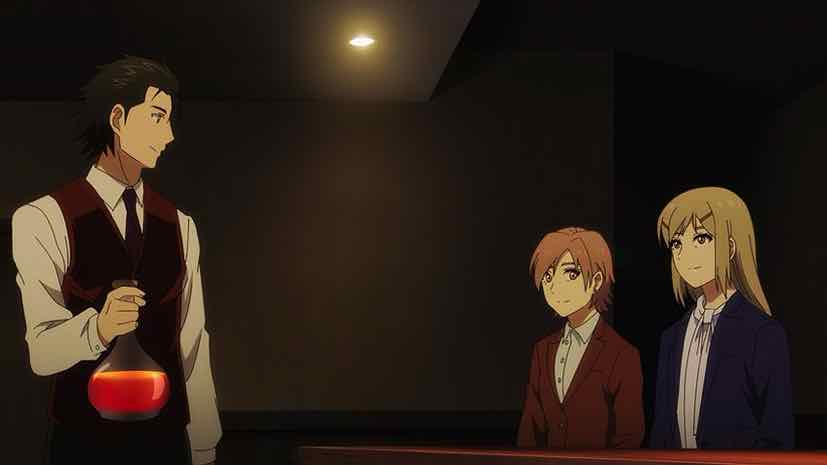 We also have Kawasaki Kyouko (the redheaded bartender from last week), coming by for inspiration after her martini (she decided not to quit) was deemed to have no face. She gets quite an education here, which culminates in the aforementioned field trip on the Hibiya Line to Roppongi, This is the much more interesting plot to me, as it really gets into the art and science of mixology. There are no shortcuts – this is the lesson Sasakura is trying to teach Kawasai-san. And the martini is the perfect cocktail to do it, because there’s nothing to hide behind. You just have to figure out how to give it a face (which some mediocre bartenders never manage to do).
We also have Kawasaki Kyouko (the redheaded bartender from last week), coming by for inspiration after her martini (she decided not to quit) was deemed to have no face. She gets quite an education here, which culminates in the aforementioned field trip on the Hibiya Line to Roppongi, This is the much more interesting plot to me, as it really gets into the art and science of mixology. There are no shortcuts – this is the lesson Sasakura is trying to teach Kawasai-san. And the martini is the perfect cocktail to do it, because there’s nothing to hide behind. You just have to figure out how to give it a face (which some mediocre bartenders never manage to do).


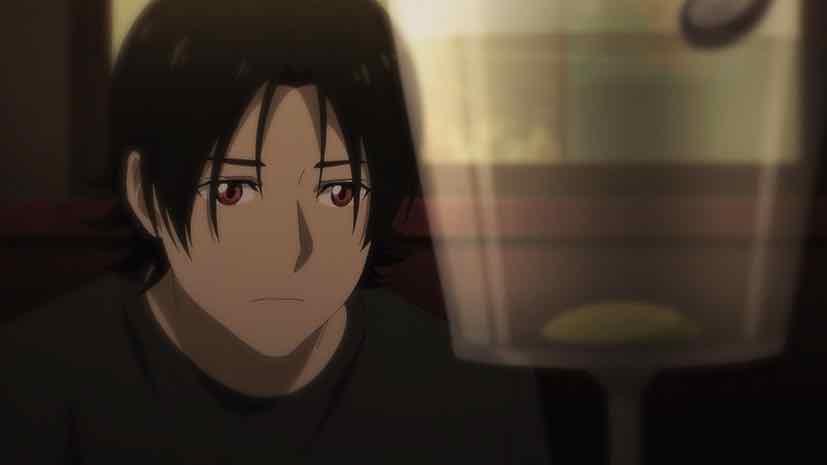
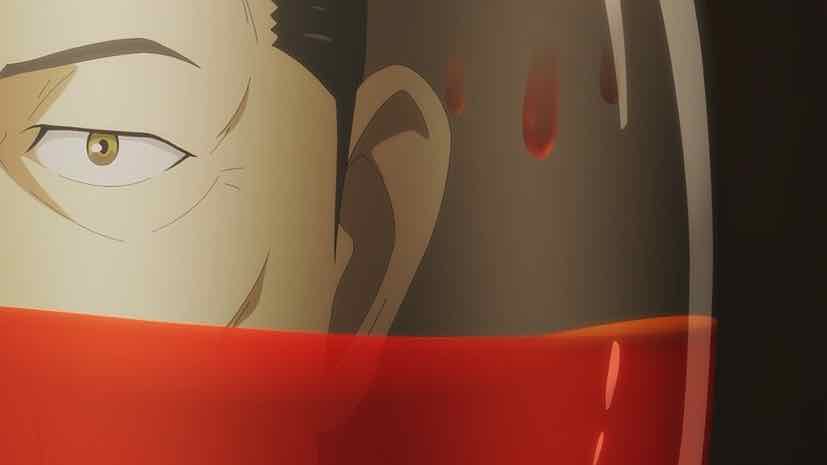
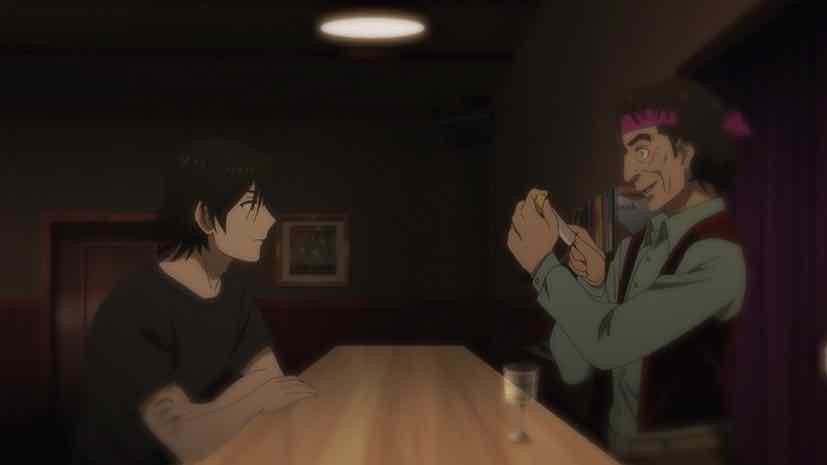
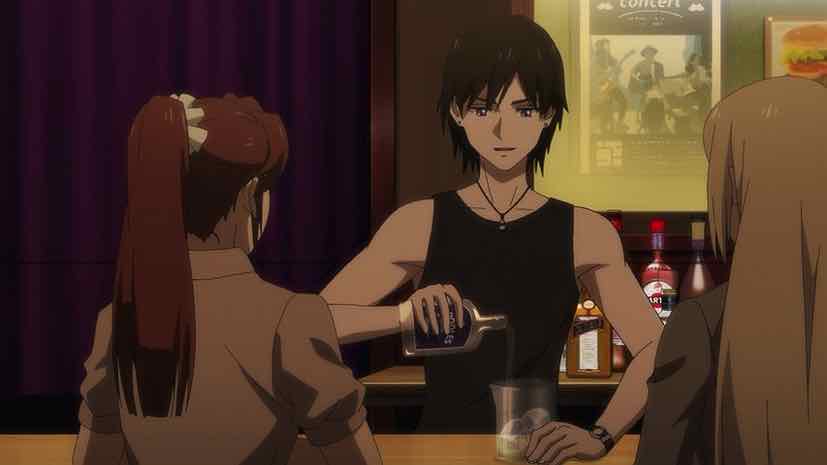
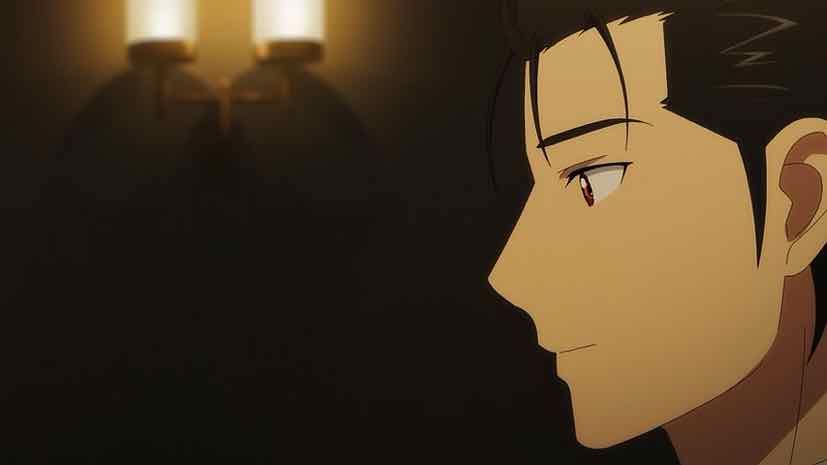
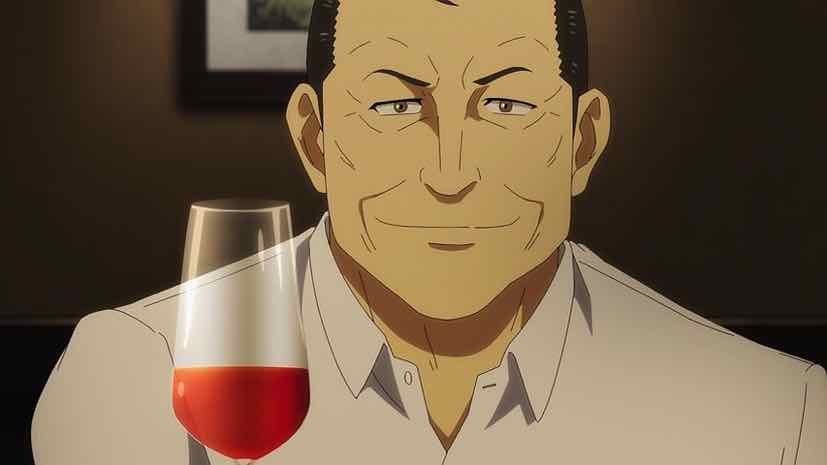
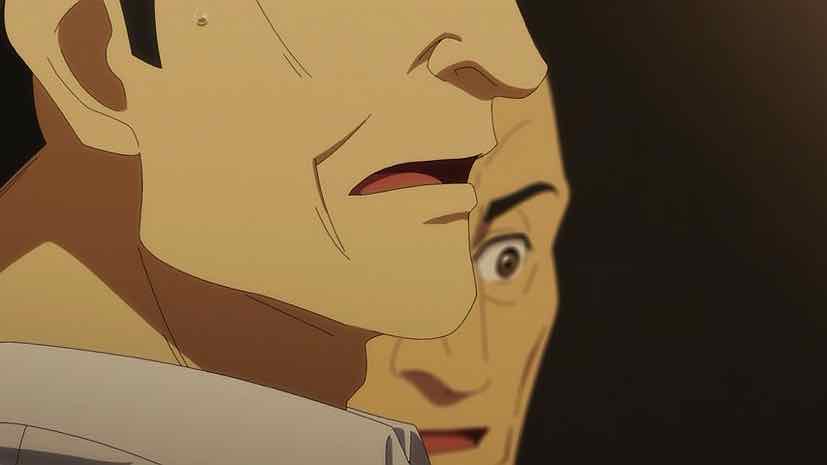
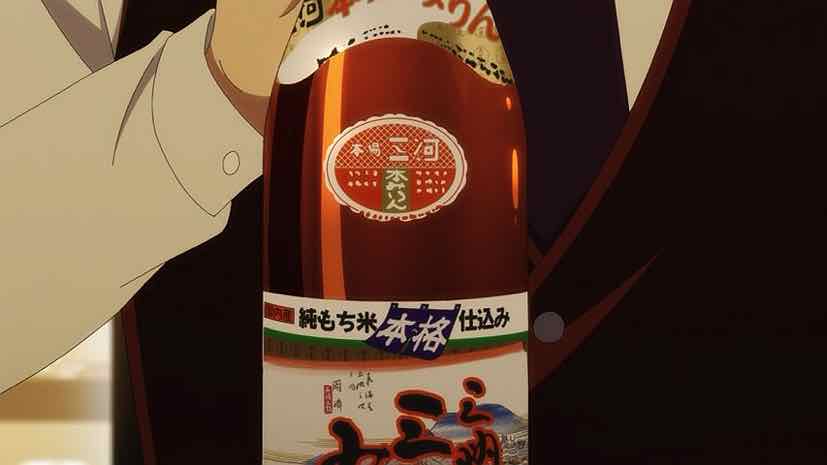
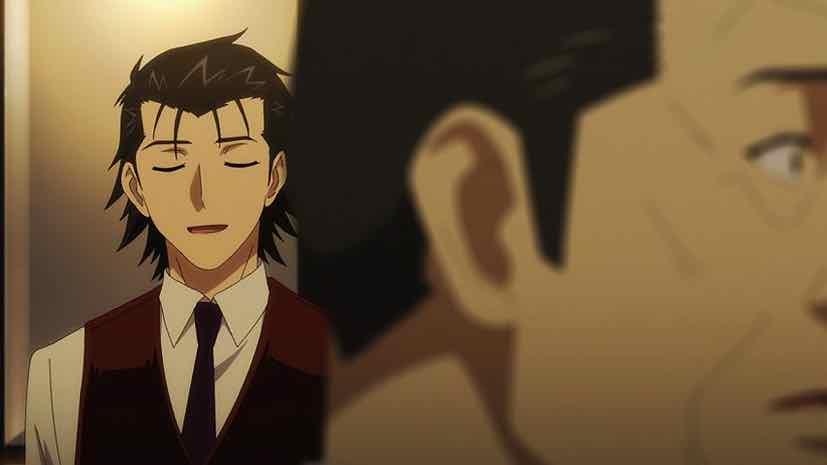
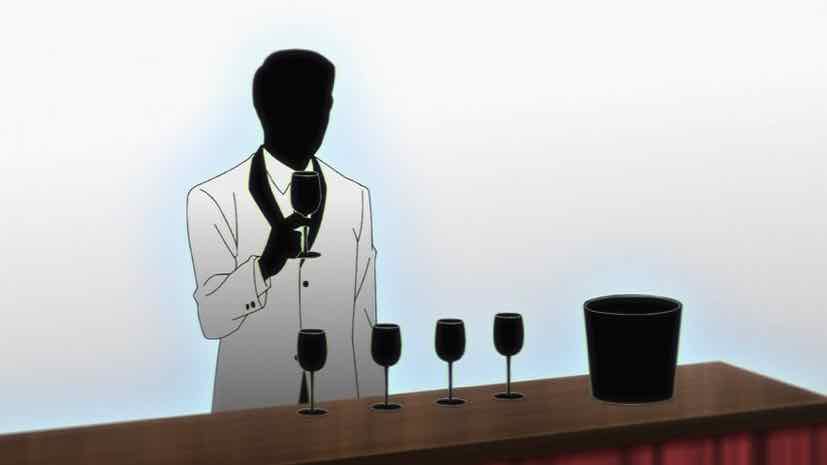
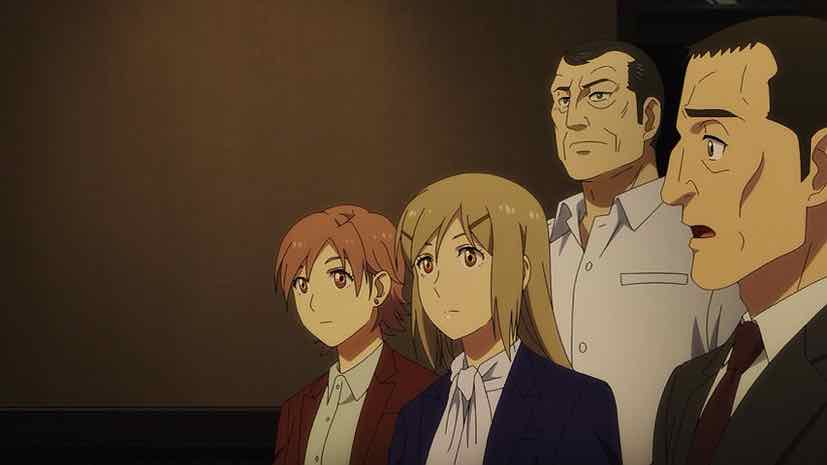
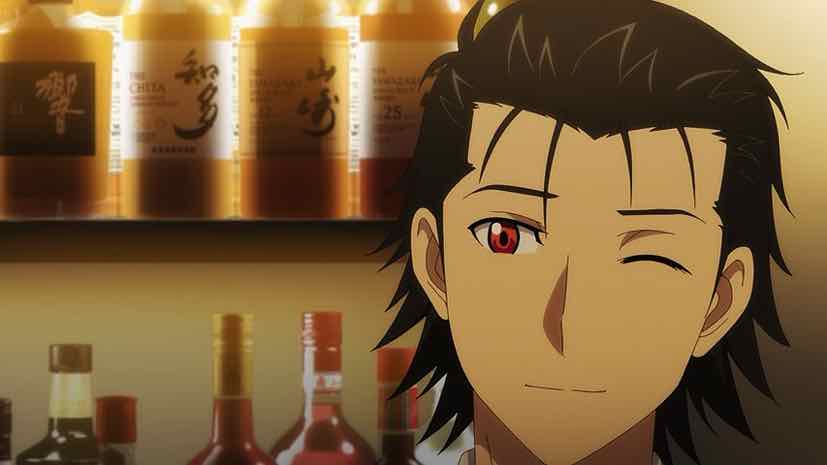
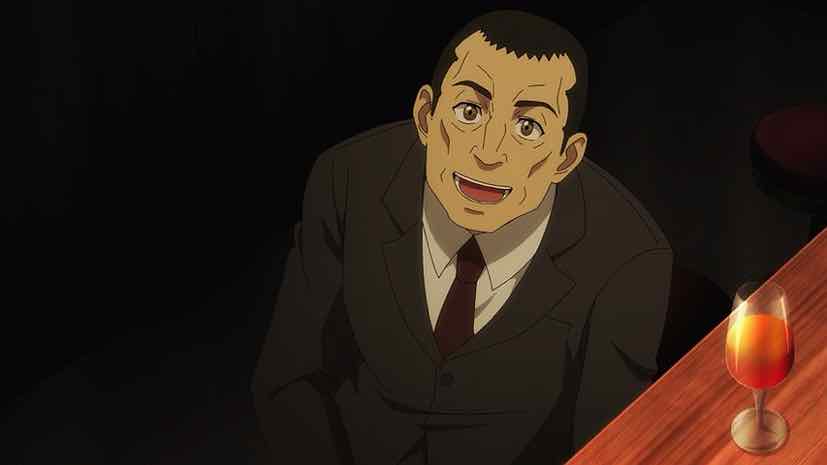
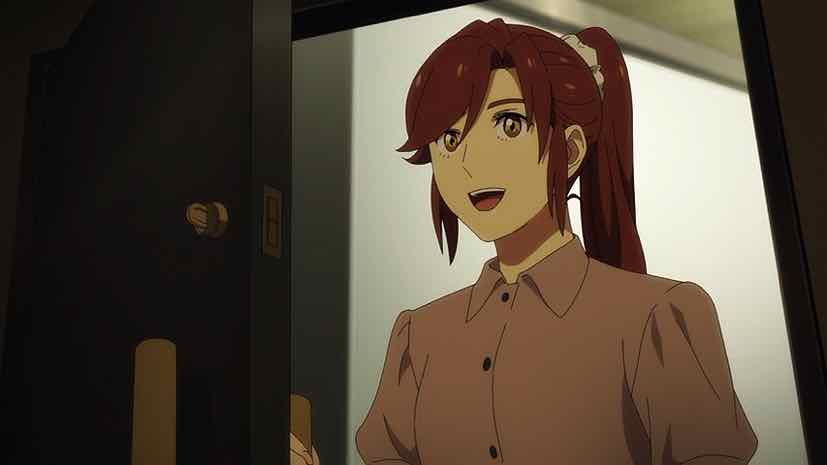
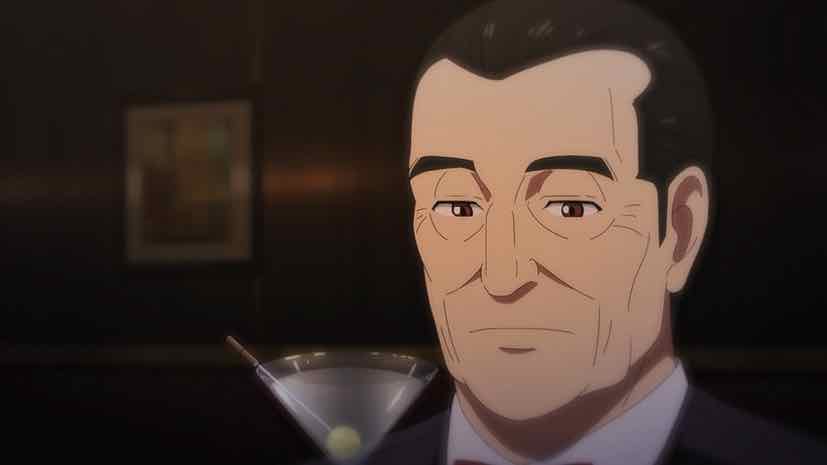
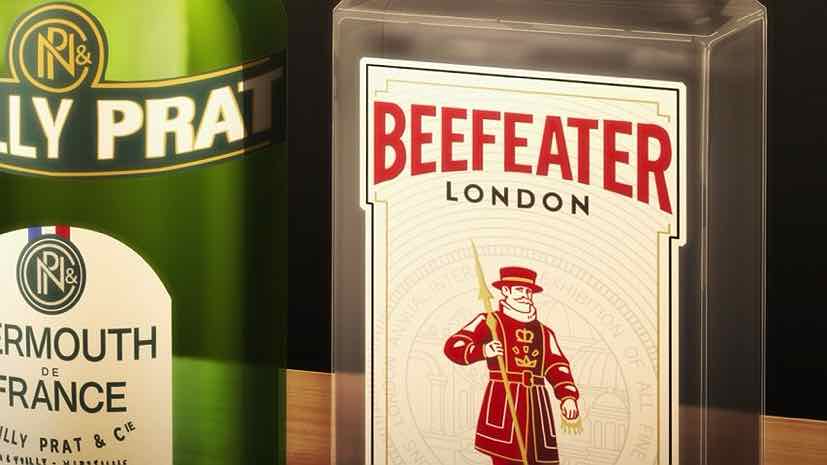

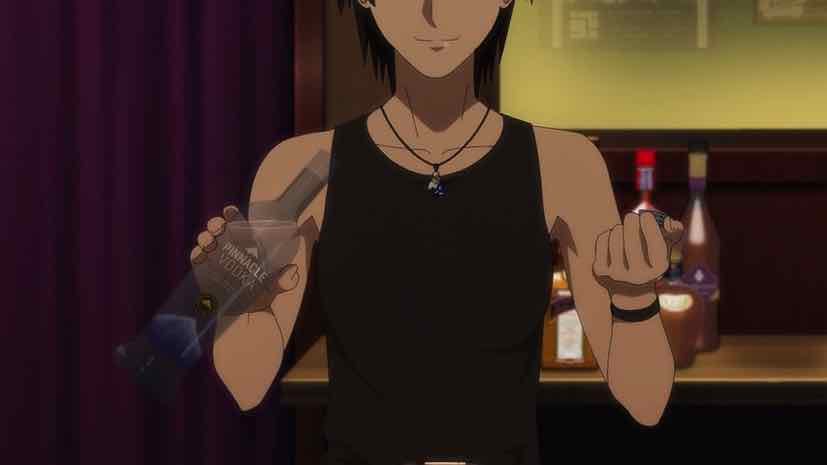
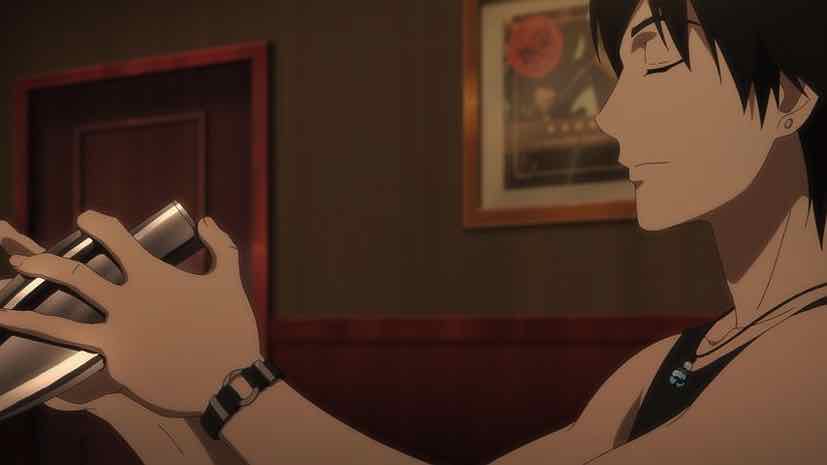
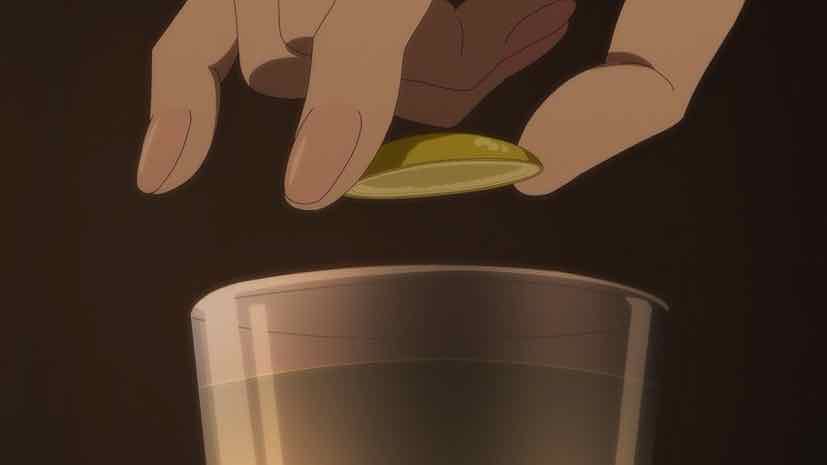
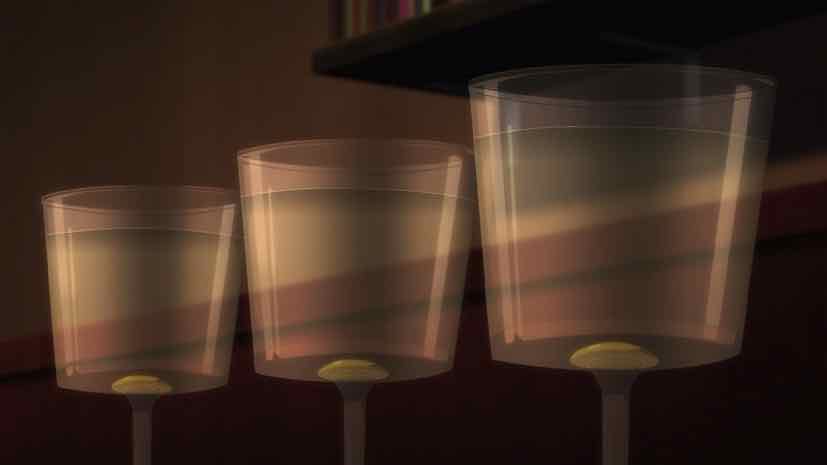
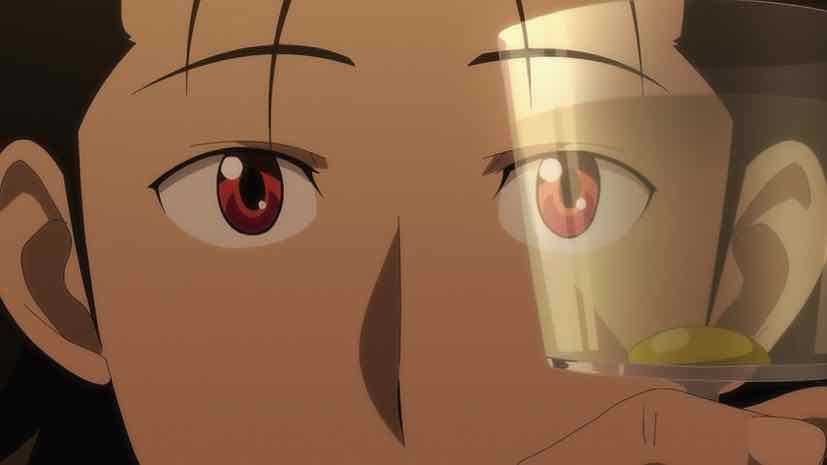
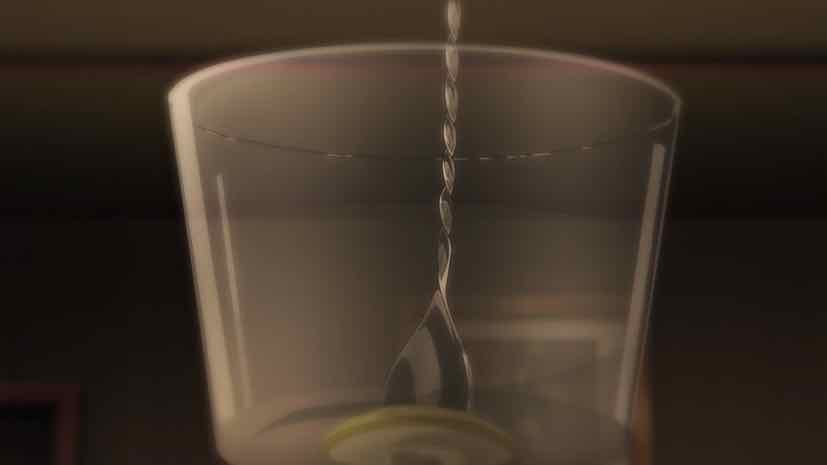
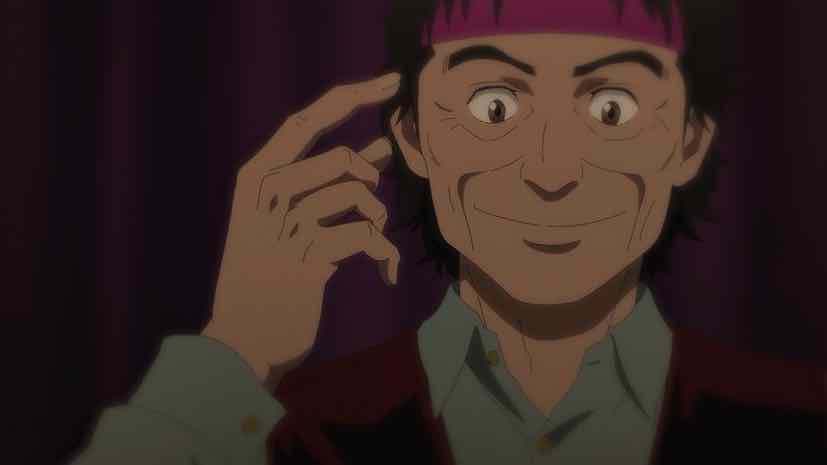
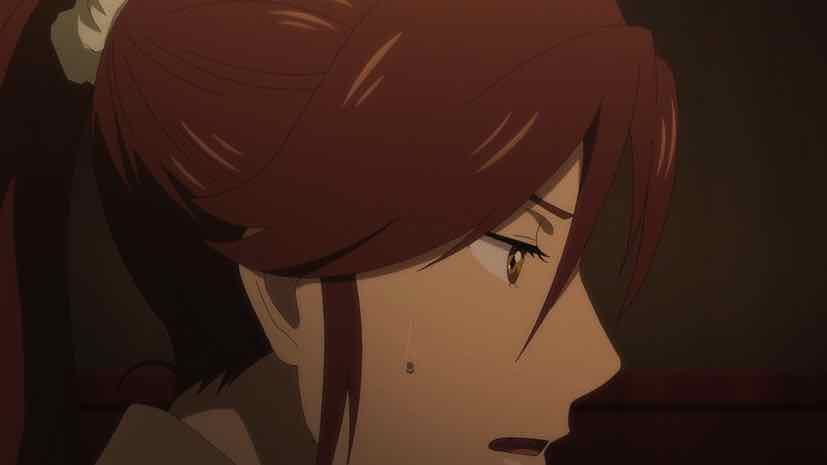
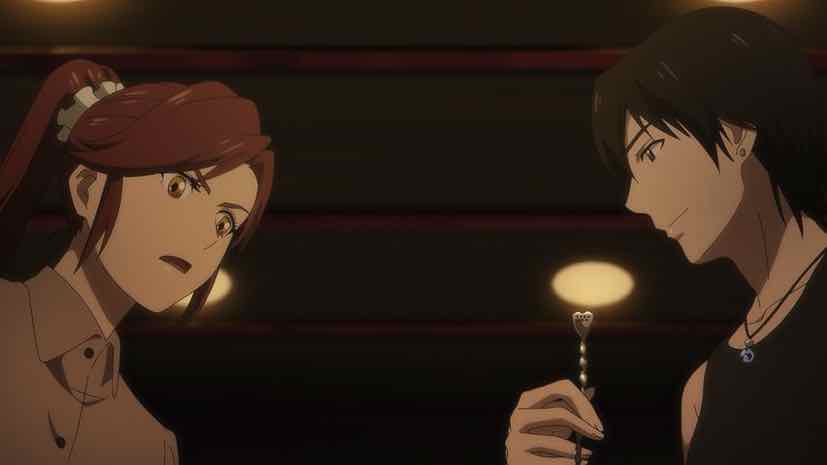

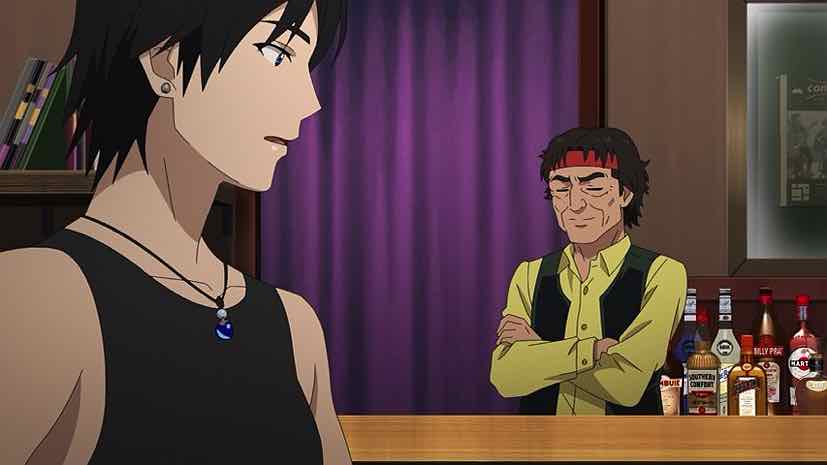
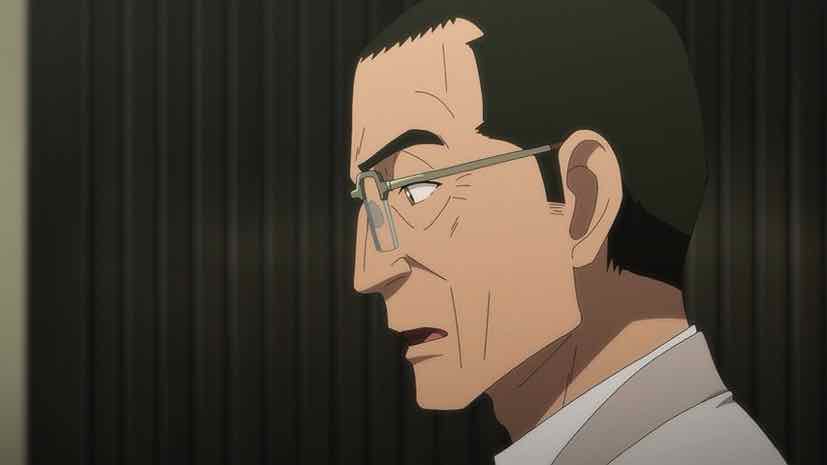
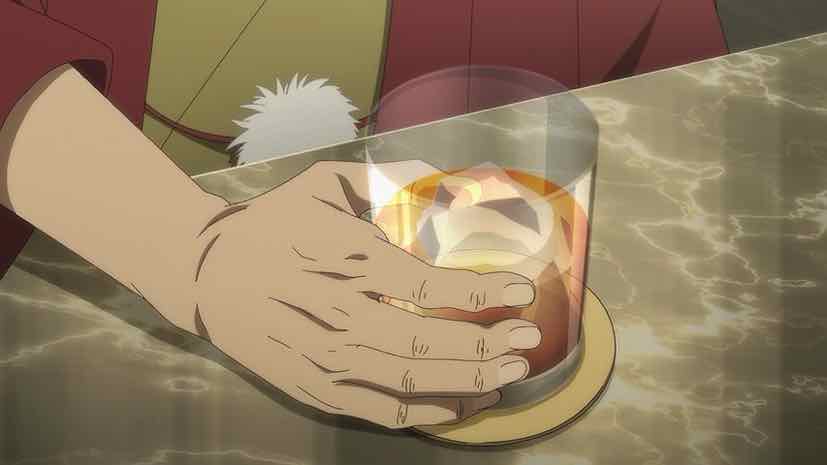


Nicc
April 27, 2024 at 8:08 amWe’ve got another episode that features recruiting, but it’s not for Sasakura this time around. Old man Kurushima is trying to hire a French chef who is extremely particular about his ingredients. All of the ingredients must come France, even the cooking water. At least that part can be replicated by tech. There exists a water filtration system that can make water taste like it came from the state of New York. I’m sure that it can be tuned to taste like French water. Right, it’s up to (I think it’s) Kamashima to win him over and he heads on down to Edenhall for some liquid inspiration. He does get some liquid encouragement in the form of a Moscow Mule, instantly recognizable as it’s served in a copper mug. The theme for this seems to be getting past preconceived notions and serving a mirin that looks and tastes like a sherry to Monsieur Yamanouchi seems to do the trick and to get him to the negotiating table with Kamashima.
I didn’t expect that we’ll see Kawakami (Is it me, or are there a lot of surnames starting with “K” in this show?) again this soon as she drops by at Edenhall. Indeed, she did not quit and she’s doing better as a bartender. However, she’s having trouble with making martinis, with her boss telling her that her martini has got no “face”. In this context, it means it doesn’t have the “face” or the distinctiveness from the bartender making the drink. Yep, that does make sense and it’s the same for cooking too. That reminds me, robot bartenders do exist. They may be able to create a perfect, textbook cocktail every time, but would a machine-made drink have a face?
Yes, the featured drink is the martini. I wonder if people do three-martini lunches anymore. That seems like an expensive lunch. To help out a bit, Sasakura takes her (And along with Miwa) to a different bar. It happens to be a bar that used to apprentice at, though the boss was away when they visited. It’s a different vibe from Edenhall and with different customers. The bartender working there is Kinjou, Yuri and all three of them ask for a martini. Okay, when I saw that the martini was going to be featured, I was waiting for the other shoe to drop. Sure, we already saw Sasakura’s gin martini, but somebody was going to order “that” martini, right? Some Scotsman is going to sidle up to the counter and order a vodka martini, shaken not stirred. He used to work for some company called Universal Exports. In this case, she did indeed make that without being prompted. Then, Kawakami decides to try Kinjou’s gin martini and to learn what kind of “face” it has. It does seem that Kawakami will become at least a semi-regular character as her growth as a bartender becomes a background arc. At the end, it seems like old man Kurushima is planning something with Mr. Perfect. On another note, there’s no martinis for me, though I’ve been enjoying a nice lemon radler lately.
Raikou
April 27, 2024 at 7:07 pmIf possible I want you to keep covering it, Enzo. Since I want to hear your insight about the drinks too.
But yeah, this is not the kind of series to sparks discussion.
Guardian Enzo
April 27, 2024 at 7:31 pmIt’s getting some votes!
Collectr
April 27, 2024 at 10:37 pmIt’s a seinen, it’s not a rom-com, it’s not a workplace comedy. Yeah, not going to attract a lot of comment. Why does that matter? Your reviews draw viewers to shows that they might otherwise ignore. (A personal example: Mr. Villain’s Day Off.) That’s a valuable service. I like shows that delve deeply into real-world details, like the coffee-making and coffee-roasting in Shirokuma Cafe. The subject doesn’t have to be applicable to me. The expertise on display in Bartender holds my interest, even though the plot itself has been low key so far.